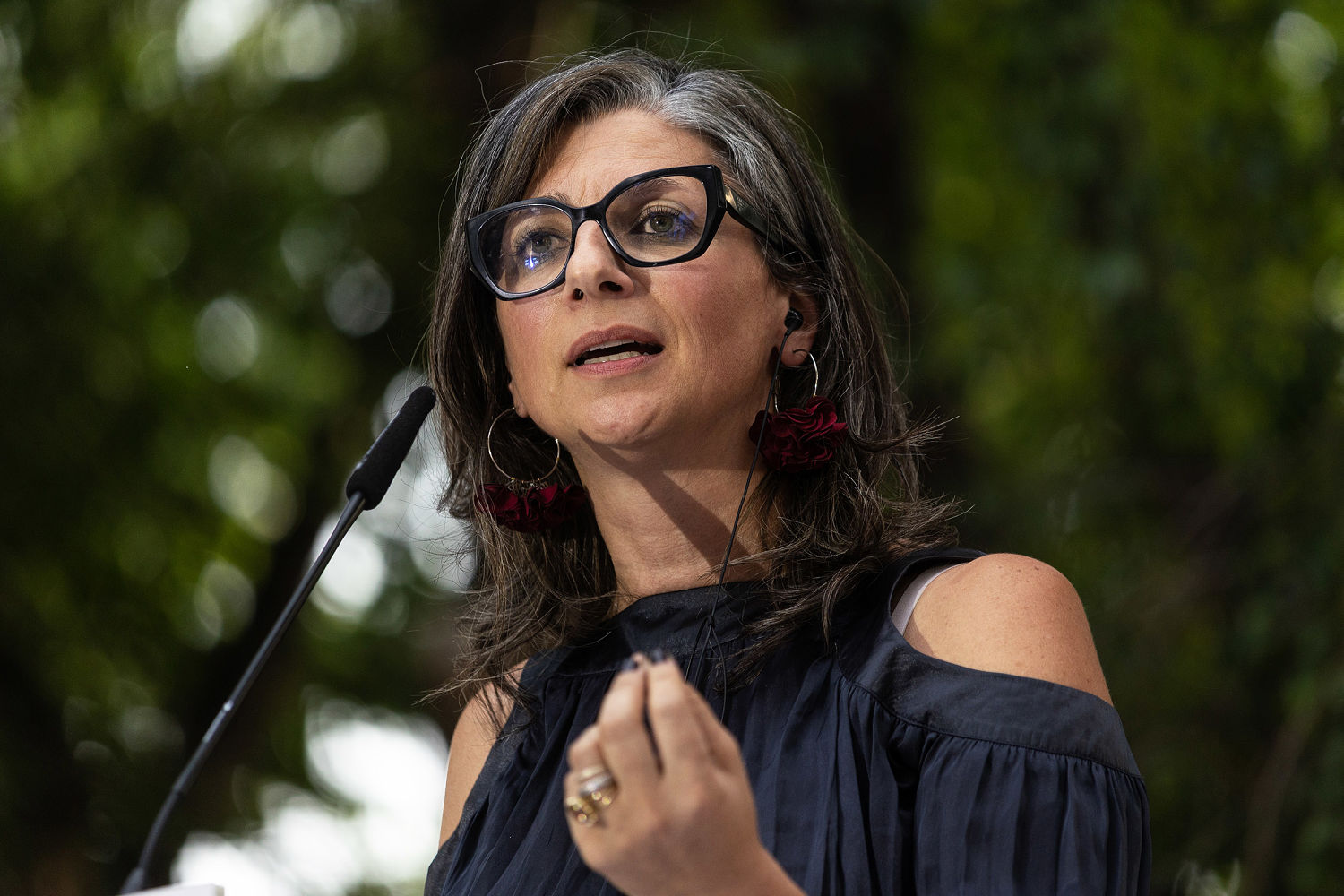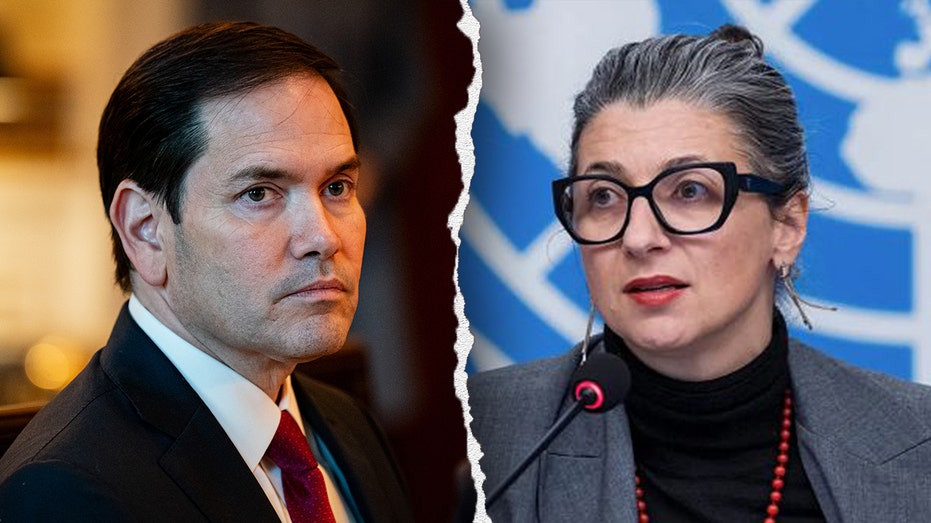See what’s trending right now
Trump Immigrationin U.S News
7 hours agoA judge has blocked Trump's order restricting birthright citizenship following a Supreme Court ruling, signaling a legal setback for the policy.
U.S News
Trump should end the ‘forever war’ in Somalia
negativeU.S News
The article argues that the U.S., under Trump's administration, should withdraw from Somalia, framing the fight against Al-Shabaab as a regional issue rather than America's responsibility. While acknowledging the risks to locals and Americans in the area, the piece suggests that prolonged U.S. military involvement isn’t justified.
Editor’s Note: This taps into the broader debate about America's role in global conflicts—specifically whether "forever wars" are worth the cost. If the U.S. pulls back, it could shift security dynamics in Somalia, but it also raises questions about who fills the void. For readers, it’s a reminder of how far (or not) the U.S. has come in disentangling itself from post-9/11 military commitments.
U.S. sanctions U.N. expert critical of Israel's war in Gaza
negativeU.S News
The U.S. has slapped sanctions on Francesca Albanese, a U.N. human rights expert who’s been outspoken about Israel’s military actions in Gaza. This move signals Washington’s strong pushback against criticism of its ally, Israel, amid the ongoing conflict.
Editor’s Note: Sanctioning a U.N. official isn’t just bureaucratic—it’s a bold political statement. The U.S. is making it clear it won’t tolerate international scrutiny of Israel’s war tactics, even from within the U.N. This could deepen tensions over Gaza’s humanitarian crisis and America’s role in the conflict.
Trump’s Ukraine weapons pivot exposes tensions over US role
negativeU.S News
President Trump’s sudden reversal on pausing weapons shipments to Ukraine has laid bare internal divisions in his administration. After initially halting some military aid last week—which he later claimed he didn’t know about—Trump announced Monday that defensive weapons, including air defense missiles, would resume flowing to Ukraine. The whiplash has raised questions about who’s really calling the shots and how consistent U.S. support for Ukraine will be.
Editor’s Note: This isn’t just about weapons—it’s about trust. Allies and adversaries alike are watching to see if the U.S. stays steady in backing Ukraine, and Trump’s mixed signals (plus his odd claim of ignorance about his own administration’s decisions) make America’s commitment look shaky. For Ukraine, which relies heavily on U.S. aid to fend off Russian aggression, unpredictability from Washington could have real consequences on the battlefield.
U.S. issues sanctions against United Nations investigator probing abuses in Gaza
negativeU.S News
The U.S. has slapped sanctions on Francesca Albanese, the U.N. investigator looking into human rights abuses in Gaza, after failing to push her out of the role. It’s a rare move—targeting a U.N. official—and signals Washington’s sharp disagreement with her findings.
Editor’s Note: This isn’t just bureaucratic drama—it’s a bold, controversial step that could strain U.S. relations with the U.N. and fuel debates about whether politics is undermining accountability for wartime abuses. Albanese has been a vocal critic of Israel’s actions in Gaza, and the sanctions suggest the U.S. is willing to flex its muscle to shield an ally. Critics will see it as silencing dissent; supporters might call it pushing back against bias. Either way, it’s a story about power, principles, and who gets to call the shots in international justice.
Watchdog backs Rubio’s sanctions on UN official over ‘shameful efforts’ targeting US, Israel
negativeU.S News
The U.S. has slapped sanctions on a UN official, Francesca Albanese, after Senator Marco Rubio and others accused her of leading "shameful efforts" to target American and Israeli officials through the International Criminal Court (ICC). The State Department confirmed the move, signaling a sharp U.S. pushback against what it sees as unjust actions by international bodies.
Editor’s Note: This isn’t just bureaucratic drama—it’s a flashpoint in the ongoing tension between the U.S. and international institutions like the ICC. By sanctioning a UN official, the U.S. is sending a clear message: it won’t tolerate what it views as overreach against its allies or itself. Expect more clashes like this as global diplomacy gets messier.
House Republican moves to permanently repeal sanctions on Syria
negativeU.S News
A Republican congressman, Joe Wilson from South Carolina, is pushing to permanently scrap U.S. sanctions on Syria. This comes after former President Trump loosened penalties on the country, which had been under strict sanctions due to the brutal rule of dictator Bashar al-Assad. Wilson’s proposal targets the Caesar Syria Civilian Protection Act, a law designed to pressure Assad’s regime, and he’s trying to attach this repeal to a major defense bill.
Editor’s Note: Sanctions on Syria were meant to hold Assad accountable for atrocities during the civil war. If they’re lifted entirely, it could signal a major shift in U.S. policy—one that critics say lets a dictator off the hook while ignoring human rights abuses. Supporters might argue it’s time to move on or ease humanitarian fallout, but either way, this move could reignite debates over how America deals with oppressive regimes.
The White House pauses and then resumes supplying weapons to Ukraine. Why the change?
neutralU.S News
The White House briefly halted weapons shipments to Ukraine but quickly reversed course, signaling potential new support—including a Patriot missile system—to counter Russia’s relentless drone and missile attacks. The pause-and-go move raises questions about the administration’s decision-making behind the scenes.
Editor’s Note: Aid to Ukraine isn’t just about military hardware—it’s a political tightrope. The hesitation (and sudden reversal) hints at internal debates or external pressures shaping U.S. involvement. For Ukraine, these delays can have real consequences on the battlefield, where every missile system counts. For the world, it’s a reminder of how volatile wartime alliances can be.
Trump hosts West African leaders as the region reels from U.S. aid cuts
neutralU.S News
President Trump is sitting down with five West African leaders for a White House lunch—a diplomatic gesture that comes as the region struggles with recent cuts to U.S. aid. The meeting hints at a balancing act: maintaining relationships while scaling back financial support.
Editor’s Note: This isn’t just a photo-op lunch. West Africa relies heavily on U.S. aid for everything from health programs to security, so these cuts have real consequences. The meeting suggests the administration wants to keep ties strong, even as it pulls back funding—leaving leaders in a tricky spot. For readers, it’s a snapshot of how shifting U.S. priorities ripple across the globe.
Why World Pulse Now?
Global Coverage
All major sources, one page
Emotional Lens
Feel the mood behind headlines
Trending Topics
Know what’s trending, globally
Read Less, Know More
Get summaries. Save time
Stay informed, save time
Learn moreLive Stats
Articles Processed
10,089
Trending Topics
118
Sources Monitored
211
Last Updated
3 hours ago
Live data processing
How it works1-Minute Daily Briefing
Stay sharp in 60 seconds. Get concise summaries of today’s biggest stories — markets, tech, sports, and more
Why World Pulse Now?
Global Coverage
All major sources, one page
Emotional Lens
Feel the mood behind headlines
Trending Topics
Know what’s trending, globally
Read Less, Know More
Get summaries. Save time
Stay informed, save time
Learn moreLive Stats
Articles Processed
10,089
Trending Topics
118
Sources Monitored
211
Last Updated
3 hours ago
Live data processing
How it works1-Minute Daily Briefing
Stay sharp in 60 seconds. Get concise summaries of today’s biggest stories — markets, tech, sports, and more






